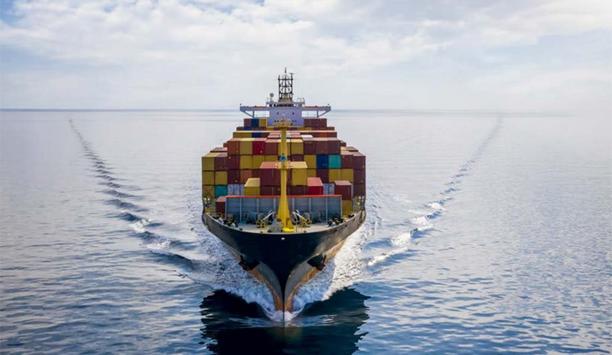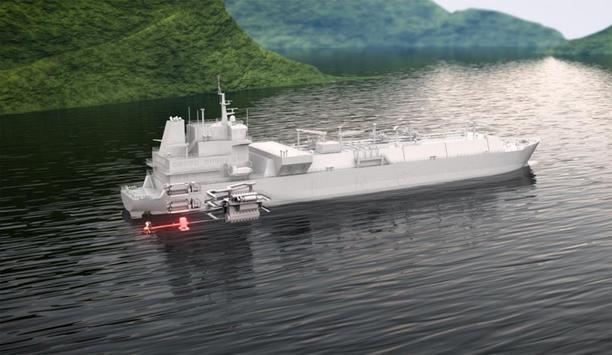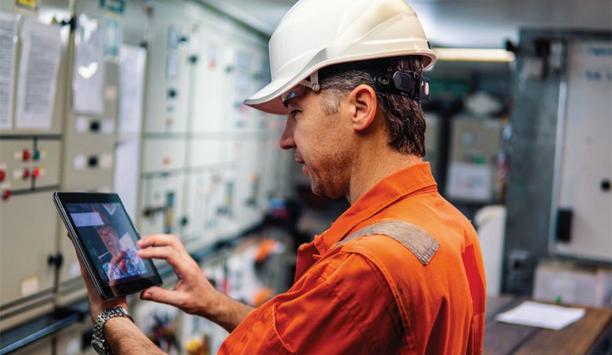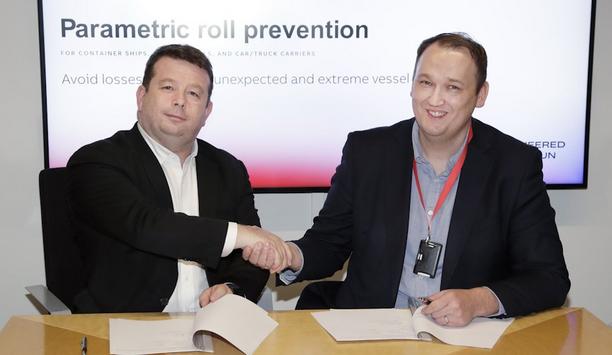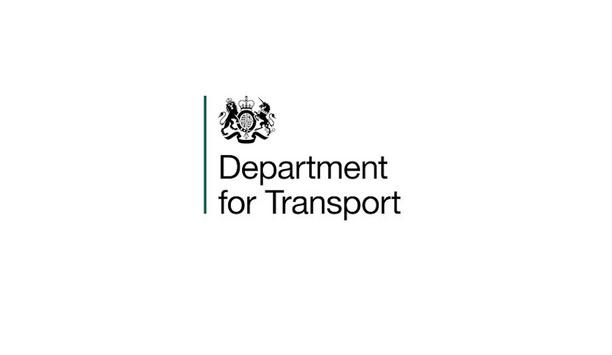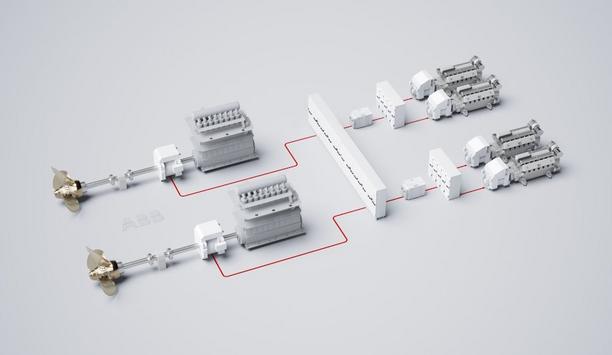ABB - Experts & Thought Leaders
Latest ABB news & announcements
Technology pioneer ABB, and the CMA CGM Group, a player in sea, land, air and logistics solutions, are collaborating on a new parametric roll algorithm to improve ship safety. The solution integrates a theoretical framework developed by CMA CGM into the ABB Ability™ OCTOPUS Marine Advisory system. Challenge to ship safety New algorithm will help enhance operational safety by reducing the risk of accidents Parametric rolling has been a challenge to ship safety for decades. Particularly affecting container ships, ro-pax vessels, and car carriers, it means that a vessel experiences large rolling motions as it moves in waves. The phenomenon is hard to predict and poses a threat to vessel, cargo, and crew safety. By detecting and helping to prevent extreme parametric rolling, the new algorithm will help enhance operational safety by reducing the risk of accidents, vessel damage, and cargo loss at sea. Integration into ABB’s OCTOPUS system By reducing the risk of cargo loss incidents at sea that can lead to oceanic pollution, it will help protect the marine environment. Preventing parametric roll incidents can also help avoiding potential costs associated with repairs and cargo damage. Furthermore, through its integration into ABB’s OCTOPUS system, the solution will allow real-time monitoring and response, improving voyage efficiency and reducing downtime caused by adverse weather conditions. Installation of the OCTOPUS onboard system ABB’s scope of supply covers the installation of the OCTOPUS onboard system As part of its commitment to the safety of its crew members, vessels and customers’ cargo, CMA CGM will deploy the solution across its global fleet and offer comprehensive training services for the users. These trainings will also be available for the wider shipping industry. ABB’s scope of supply covers the installation of the OCTOPUS onboard system as well as complete engineering, project management, and commissioning services. Integration of the CMA CGM theoretical framework “We are excited to collaborate with ABB on this parametric roll algorithm, a groundbreaking integration of the CMA CGM theoretical framework with the ABB Ability™ OCTOPUS Marine Advisory system." "This solution not only enhances safety and operational efficiency but also helps to minimise risks for cargo damage and loss at sea. This collaboration represents a major leap forward for the industry, enabling more efficient operations and safer voyages,” said Emmanuel Delran, Vice President Group Operations, CMA CGM Group. Vessel safety and operational efficiency New collaboration sets a benchmark for safety and technological advancement “Recent development in the maritime sector has focused increasingly on safety and sustainability,” said Tomas Arhippainen, Head of Marine Service and Digital, ABB Marine & Ports. “Our partnership with CMA CGM on the parametric roll algorithm underscores our commitment to improving vessel safety and operational efficiency as well as contributing to environmental protection. By providing a tool that helps to mitigate the risks associated with parametric roll, we are taking a meaningful step forward in the global shipping industry." Safety and technological advancement ABB and CMA CGM have a longstanding relationship, with around 200 vessels equipped with ABB’s OCTOPUS system. Building on that, this new collaboration sets a benchmark for safety and technological advancement, encouraging also other companies to develop and adopt new innovations.
Fuels of the future and shipping charge points in harbours are at the centre of a major new strategy to make Britain’s shipping fleet net zero by 2050 and drive growth in coastal communities. The Maritime Minister has revealed the Government’s new goals for all vessels that operate in UK waters and dock at UK ports to be carbon-free and help vessel owners, operators and scientists make emission-free voyages a reality. Maritime Decarbonisation Strategy Maritime Decarbonisation Strategy sets out goals to reduce greenhouse gas emissions by 30% by 2030 Part of the Government’s Plan for Change to propel the UK towards becoming a green energy superpower and drive growth, the new Maritime Decarbonisation Strategy sets out goals to reduce greenhouse gas emissions by 30% by 2030, 80% by 2040 and to zero by 2050. This will see the UK match the highest level of the ambitious goals agreed at the International Maritime Organization in their 2023 Strategy on Reduction of Greenhouse Gas Emission from Ships. Investment in green technologies Investment in green technologies and fuels will cement the UK as a clean energy superpower and encourage a green economic revival at the local level, helping to build high-skilled jobs in coastal communities, delivering a local boon to cities and towns. Under the new strategy, the shipping sector will be brought under the UK Emissions Trading Scheme (UK ETS). This will see operators of larger vessels such as tankers and cruises – which cause the most pollution - pay more for their greenhouse gas emissions. New green shipping technologies The strategy sets out plans to reduce emissions from shipping and raise the use of clean fuels Furthermore, the strategy sets out plans to reduce emissions from shipping and increase the use of clean fuels and technologies, such as hydrogen, electric or ammonia vessels. Later, the Minister will launch the new strategy in Portsmouth with vessel chargeport pioneer ABB and demonstrate how these new green shipping technologies will bring in private investment, create thousands more jobs, and revitalise coastal communities. Such investment has already seen growth in coastal regions, with the £206m of UK Shore funding having already supported over 300 organisations across every nation and region in the UK, and secured over £100 million of private investment, helping to kickstart economic growth. Climate change Maritime Minister Mike Kane said: “Climate change is one of the greatest challenges we face today. Working together with industry and international partners, we are driving down emissions in every corner of the economy." “As part of our Plan for Change, we’re committed to making the UK a green energy superpower, and our Maritime Decarbonisation Strategy will help us build a cleaner, more resilient maritime nation.” Net zero with ambitious targets The government has launched two calls for proof to help inform the growth of measures In addition, the Government is also launching two calls for evidence now to help inform the development of measures needed to reduce emissions at berth, understand the future energy demand at ports and decarbonise smaller vessels. Richard Ballantyne OBE, Chief Executive of the British Ports Association, said: “We welcome today's announcement. UK ports are already demonstrating their commitment to net zero with ambitious targets and investment in new technologies and fuels." Investment and decarbonisation for vessels Ballantyne added: "The UK SHORE programme shows what can be achieved when government and industry work together on shared goals." "We will continue to work closely with the Department for Transport on lowering barriers to investment and decarbonisation for both ports and vessels and this strategy will help set a clear direction and expectations well into the future. We look forward to a continued close partnership built on common aims.” Challenge and opportunity for the maritime sector Chris Shirling-Rooke, Chief Executive of Maritime UK, said: “Decarbonisation is both an enormous challenge and opportunity for the maritime sector, with huge potential for growth, jobs and innovation in our coastal communities, and across the whole of the United Kingdom." "It is vital that our country continues to drive change and chase growth by creating a cleaner and more sustainable future. We welcome the Government’s commitment today and look forward to continuing to work with them on the Maritime Decarbonisation Strategy.” Zero emissions vessels and infrastructure Mike Sellers, Director of Portsmouth International Port, said: “We welcome the announcement of the new Maritime Decarbonisation Strategy, which the port’s masterplan very much aligns with. To help achieve this ambition, we’re on track to become the UK’s first multi-berth, multi-ship ‘chargeport’ by providing renewable plug-in energy when ships are alongside from Spring 2025." "The Seachange shore power project, demonstrates the success of both public and private investment, supported by the government’s zero emissions vessels and infrastructure (ZEVI) fund, driving innovation towards net zero. We’re pleased to show the minister what’s happening in Portsmouth and how this could be a model for ports across the country.” Net zero emissions by 2050 Rhett Hatcher, CEO of the UK Chamber of Shipping, said: “The UK Chamber is proud to have led the way on decarbonisation, publicly calling for the global shipping industry to reach net zero emissions by 2050, prior to the UK Government and IMO Commitments." "Across our sector, we have already invested in new technologies and pioneering innovations to meet our commitments and are pioneering the drive towards net zero. We therefore welcome the Government’s publication of the Maritime Decarbonisation Strategy, as a much-needed successor to the 2019 Clean Maritime Plan." Green transition for UK maritime Hatcher added: “The Government’s strategy must now be matched by delivering the regulatory framework, technology and infrastructure, including a shore power revolution, required to support the green transition for UK maritime, bringing benefits to maritime communities and the UK economy." "We look forward to working collaboratively alongside the government to progress this important agenda and reach our shared goals of a cleaner, more resilient maritime sector in the UK.” Reduce emissions from global shipping Anna Krajinska, UK Director at Transport & Environment (T&E), said: "T&E welcomes the government's commitment to reduce shipping emissions by 30% by 2030, 80% by 2040 and net zero by 2050. It is crucial that ambitious targets are coupled with robust policy measures to slash the UK’s domestic and international shipping emissions without delay." With global shipping accounting for 2% of all emissions, the UK will push for high ambitions at the UN’s next meeting of the International Maritime Organization (IMO) in April, as it develops important measures to reduce emissions from global shipping.
ABB has secured orders from shipbuilders in China and South Korea to equip 18 and 12 liquified natural gas (LNG) carriers, respectively, with permanent magnet shaft generator technology. The ships are due for delivery between 2028 and 2030. Enhancing operational efficiency by utilising the power from the main engine, ABB’s permanent magnet shaft generator system improves fuel economy compared to solutions where power is provided by auxiliary engines. Magnet shaft generator solution The permanent magnet shaft generator solution provides better efficiency than either induction By avoiding starting up high-speed fuel-intensive auxiliary engines during a voyage, ship operators can achieve significantly greater fuel efficiency. In addition, the permanent magnet shaft generator solution provides better efficiency than either induction or electrically excited synchronous machines, at full and partial load. ABB’s ACS880 Converter and Control System According to ABB’s estimation, the company’s permanent magnet shaft generator system can cut fuel costs by up to four percent compared to conventional solutions. When combined with ABB’s advanced ACS880 Converter and Control System, which ensures maximum flexibility and functionality in hybrid applications, the technology can increase fuel efficiency by a further one percent. Decarbonisation targets The system has the potential to deliver up to 20 percent space and weight savings By eliminating the excitation unit inside the converter, combined with the compact size of the permanent magnet shaft generator, the system has the potential to deliver up to 20 percent space and weight savings, while its simple design helps to reduce installation and maintenance costs. These gains make a significant difference for ship owners working to increase their competitive advantage in alignment with the International Maritime Organization’s decarbonisation targets. Benefits across a wide scope of cargo vessel types “We are proud to win the largest ever combined orders for our permanent magnet shaft generator systems, with LNG carrier deliveries set for multiple AMEA owners from shipbuilders in China and South Korea,” said Michael Christensen, Global Segment Responsible for Cargo Vessels, ABB Marine & Ports. “These agreements include first-time customers for the permanent magnet shaft generator system, further confirming its benefits across a wide scope of cargo vessel types to serve shipping’s need for the enhanced fuel efficiency that reduces operating costs and helps them to meet decarbonisation requirements.”






























